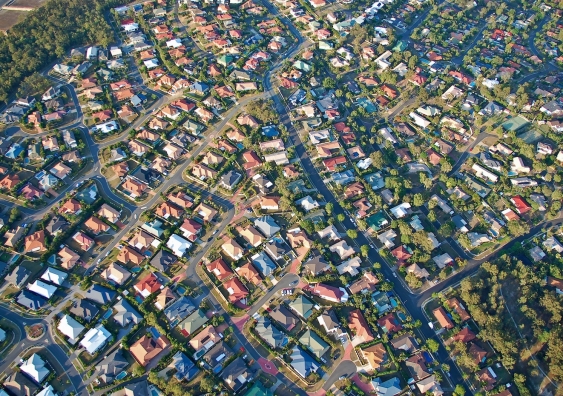Tackling the housing crisis: new report outlines comprehensive strategy
COVID turbo-charged Australia’s existing housing problems, but policy solutions are available, says a new report.
COVID turbo-charged Australia’s existing housing problems, but policy solutions are available, says a new report.

A newly-published UNSW Sydney research report provides a comprehensive roadmap to confront Queensland’s housing and rental crisis, with many of its recommendations applicable and adaptable Australia-wide.
The report, A blueprint to tackle Queensland’s housing crisis,, opens in a new window was commissioned by the Queensland Council of Social Service (QCOSS) with support from a coalition of partner agencies. It is one of the most wide-ranging housing policy reviews to date.
“The report lays out an evidence-backed reform package that tackles the housing crisis at state level, with suggestions on federal input as well,” says Professor Hal Pawson, opens in a new window, Housing Research and Policy expert from UNSW’s City Futures Research Centre, opens in a new window and lead author on the report.
“In a nutshell, the housing crisis comprises declining home ownership, growing private rental stress, rising homelessness and shrinking social housing capacity,” says Dr Andrew Clarke, opens in a new window, lecturer in sociology and social policy at UNSW’s School of Social Science and co-author of the report.
“The pandemic exacerbated all these problems, but Premier Palaszczuk’s action in convening her Queensland Affordable Housing Summit last year is really encouraging evidence that the state recognises the gravity of the challenge and has the ambition to tackle it.”
“Our report for QCOSS highlights a wide range of feasible and realistic policies that can effectively confront aspects of the housing policy challenge affecting Queensland and other states – many of which can be actioned at no cost to the government,” says Prof. Pawson.
As emphasised by the report, problems such as the declining rate of young adult home ownership have been gradually intensifying for decades. Equally, recent years have seen a new surge in housing stress in Queensland, more marked than in any other part of the country.
“In Queensland, a majority of new private lets are unaffordable to low-income households, and homelessness has been rising faster than in any other mainland state,” says Prof. Pawson.
“Governments have failed to grow the social housing portfolio in line with population, and private rent inflation has been recently rampant.
“These negative trends are happening in most parts of the country but are of a higher intensity in Queensland, partly due to high rates of migration from other states and partly due to other factors such as the conversion of long-term rentals into short-term lettings through platforms like Airbnb.”
Unlike most other states, Queensland’s population is evenly split between region and city – and it’s regional Australia where the post-COVID housing crisis has generally been most intense.
“Our report adds to the evidence of the scale and the profile of unmet housing need,” says Prof. Pawson. “It also reveals the uneven geography of rental stress, indicating that several coastal and central mining areas in Queensland have experienced the most intense rent increases and declines in rental affordability over the past few years.”
“The sheer scale of housing issues facing regional Queensland is quite alarming,” says Dr Clarke, who conducted stakeholder interviews as part of the report. “There’s a lot of anecdotal chatter about a post-COVID housing crisis, but it’s glaringly apparent from our hard evidence that the regional housing problem is worse than we thought.”
The report argues that Australia is in urgent need of a coherent housing policy reform package.
“Right now, we have a piecemeal approach in housing policy that involves isolated housing initiatives that only look at specific aspects of the housing problem,” says Dr Clarke. “These alone are not enough to make a significant difference.
“Our report is pushing policymakers to think of housing as a system and address the root of the housing problem, recognising that both levels of government need to give greater priority to tackling the issue and to do so collaboratively.”
“Tax reform and co-contributions at a federal level can greatly assist states in tackling the housing crisis,” says Prof. Pawson. “Extraordinary, although it might seem, it is only in 2023 that Australia’s first-ever national housing strategy is being developed.
“We just have to hope that the Albanese Government’s National Housing and Homelessness Plan, currently taking shape in Canberra, turns out to be fit for purpose.”
Read the report: A blueprint to tackle Queensland’s housing crisis, opens in a new window
Read Hal Pawson's summary of the report published in, opens in a new window The Conversation, opens in a new window.